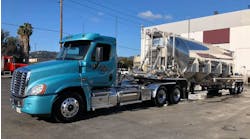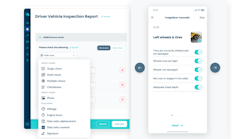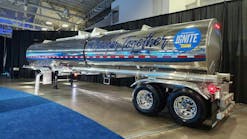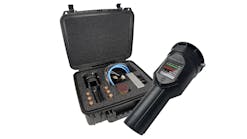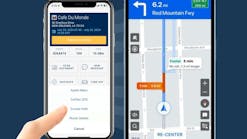Daimler Trucks North America (DTNA), in collaboration with Platform Science, recently launched Virtual Vehicle, which the companies say is the first open OEM platform that enables fleets to access telematics, software solutions, real-time vehicle data, and third-party applications directly from their vehicles.
In addition, the platform provides the tools to manage those applications, connectivity, and the mobile devices drivers need to use them. Virtual Vehicle represents a platform-first approach that provides customers greater value and a significantly expanded choice of software-enabled services.
“With Virtual Vehicle, we offer our customers an open digital solutions and services platform that allows them to choose fleet applications that best meet their needs,” said Sanjiv Khurana, head of the connected services group at Daimler Truck. “The system is seamlessly enabled in our trucks, without the need for installing any additional telematics hardware, or the associated costs and loss of uptime. Through our collaboration with Platform Science, we are building on the strong connectivity already integrated into our trucks, and offering unprecedented flexibility, efficiency, and scalability.”
Virtual Vehicle is another DTNA solution that goes beyond vehicle sales and service, the company said. With the platform’s introduction, DTNA enhances the driver experience by offering “nearly limitless” software-enabled and ROI-enhancing applications. DTNA is the first OEM to use cloud, edge, and in-dash technology to provide native in-vehicle mobile technology which enables customers to distribute, manage and enable driver applications and connected vehicle services.
The platform gives fleets flexibility to choose third-party apps, mix or match telematics service provider (TSP) applications, or bring their own. This allows truck buyers to customize their experiences down to an app-by-app and driver-by-driver level, and to create in-cab technology experiences that best suit their specific business objectives, then evolve them whenever they choose to do so.
Through its developer toolkit, Virtual Vehicle unleashes the potential for any number of third-party developers to create apps that can offer ROI for fleets and quality of life improvements for drivers. Virtual Vehicle provides the tools needed to manage the mobile devices that come and go from the vehicle, all without having to install or change on-vehicle mobile gateways or telematics units.
The Virtual Vehicle platform offers many benefits to fleets, including:
- Productivity: With factory-installed telematics hardware, fleets can maximize uptime by avoiding installation delays and costs for complementary hardware.
- Flexibility: Virtual Vehicle allows fleets to create a software experience catered to individual business needs through a growing pipeline of developer-created innovations.
- Accessibility: Virtual Vehicle leverages edge, cloud and in-dash data to optimize networks, keeping data available 24/7/365, even when fleets are offline.
- Cost-effective: Users of participating applications on Virtual Vehicle benefit from usage-based billing.
“Before Virtual Vehicle, OEMs, enterprise fleets, and developers were restricted in their ability to innovate because hardware and software were so interconnected. It was difficult to change one without impacting the other,” said Jack Kennedy, co-founder and CEO of Platform Science. “Virtual Vehicle finally unlocks that. Fleets can now choose software anytime they want, without the inconvenience and wasted investment in hardware that customers have historically had to deal with just to get new apps.
“We are thrilled to partner with DTNA and support them on this journey to make customers’ lives easier and easier as the world innovates faster and faster.”
Platform Science’s Virtual Vehicle is currently available on Freightliner Cascadias manufactured Sept. 9, 2019 or later, and will be available as a monthly subscription.
For more information, visit virtualvehicle.io.
